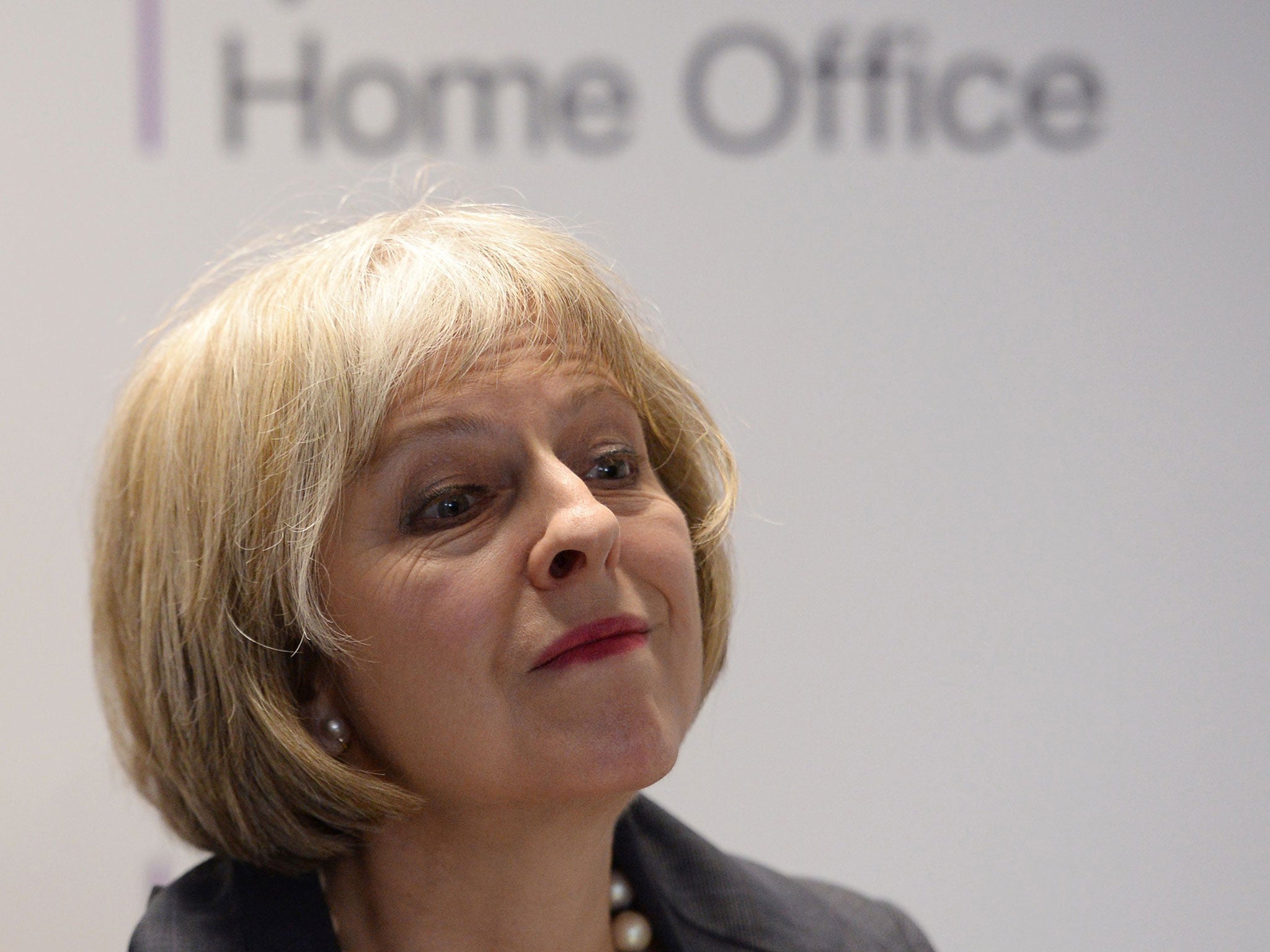Theresa May's EU instincts are pointing only one way
Home Affairs: The Home Secretary has played a key role in wringing concessions on issues that most preoccupy her

Theresa May could be David Cameron’s secret weapon if the Prime Minister struggles to convince the electorate of the merits of remaining in the European Union.
Behind the scenes, the Home Secretary has played a quiet but crucial role in wringing concessions from other EU leaders on the issues that have most preoccupied her in her six years in the job.
The role she takes in a referendum campaign will carry weight and credibility because of her instinctive scepticism about matters European: she has even previously floated the idea of Britain leaving the European Convention on Human Rights.
After a survey in November suggesting she would be the public choice to lead the “Brexit” campaign, May refused in an interview to be drawn on the subject, prompting speculation she was edging towards the Outers.
In fact, she was already leaning the other way, convinced that national security is bolstered when countries team up to combat cross-border terrorism and organised crime.
That instinct had been underlined when she infuriated Eurosceptics by pushing through moves to opt back in to the European Arrest Warrant and 34 other EU-wide justice measures.
Days after the interview, terrorists killed 130 people in co-ordinated gun and bomb attacks across Paris.
In response, the European Commission set out moves, strongly supported by May, to tighten controls on the sale and registration of firearms and agreed a deal on sharing air passenger records.
According to allies, the argument that EU membership strengthens national security has outweighed other factors, such as her disquiet over the bloc’s freedom of movement rules, although she is also worried by the potential economic impact of a Brexit.
The European Council President, Donald Tusk, has been sensitive enough to the nuances of British politics to be aware of the importance of swinging May behind any agreement.
That became clear when the Home Secretary insisted any deal contained measures cracking down on “sham marriages” designed to give non-EU nationals access to the bloc.
She had already raised the subject with her German opposite number, Thomas de Maizière, and at meetings with Polish and French interior ministers.
The issue emerged as a stumbling block in Downing Street talks, and the next day Home Office officials rushed to Brussels to try to resolve the differences. As they wrangled, Tusk’s negotiators kept asking the British team: “Will this be enough for Theresa May?”
Although the number of sham marriages is quite low, closing the loophole established the principle of states being able to override rulings of the European Court of Justice they regard as perverse. May also believes the move, plus curbs on in-work benefits for EU workers, will reduce the “pull factor” to Britain.
After the sham marriage agreement, Tusk published his reform blueprint for Britain and May signalled she was likely to campaign for the UK to stay in the EU, saying: “More work needs to be done, but this is a basis for a deal.”
And this week she warned in Washington that jihadists targeting Britain could not be defeated by “acting in isolation”.
If Cameron can announce in Brussels today that he has struck the deal he wants, the Home Secretary’s hints will become a clear declaration of her intention to support the Remain campaign.
Join our commenting forum
Join thought-provoking conversations, follow other Independent readers and see their replies
Comments
Bookmark popover
Removed from bookmarks